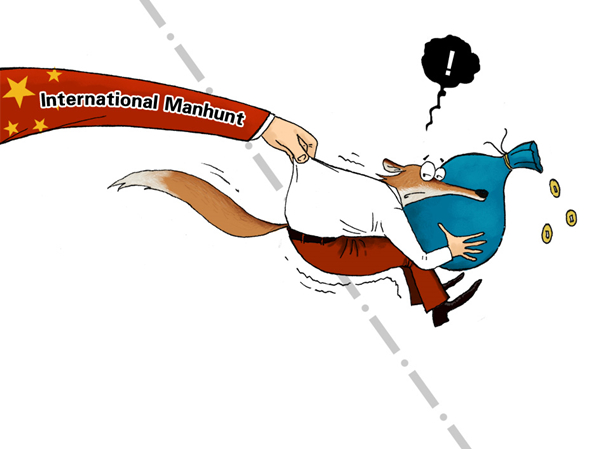Hunting fugitives abroad needs int'l cooperation
- By Yao Meng
 0 Comment(s)
0 Comment(s) Print
Print E-mail China.org.cn, January 2, 2015
E-mail China.org.cn, January 2, 2015
|
|
|
Fox hunt 2014 [By Zhai Haijun/China.org.cn] |
The Chinese government is intensifying its anti-corruption campaign, evident in its latest effort to hunt down and extradite fugitives, along with their unlawful assets, from abroad. International judicial and legal cooperation seems increasingly important in this process.
Corruption is a universal phenomenon combated by the laws of all countries. This forms the grounds for international cooperation to battle corruption, and it is also the reason why the United Nations Convention against Corruption came into being.
But differences in judiciary systems, legal systems and sentencing standards make unified international cooperation impossible: there are differences between the United States and the European Union, between developed countries and developing ones and, naturally, between China and Western countries, too. Thus, there is no all-around international cooperation agreement to combat corruption or even to combat criminals; there are only bilateral or multilateral deals that govern this.
In light of this, China should expect difficulties when working with other countries to handle anti-corruption and anti-criminal efforts in an international arena. Most Western countries, many of which have abolished the death penalty, mistrust and are biased against China's social institutions, including its judicial system.
Many corrupt officials and criminal offenders profit by these judicial differences, which allow them to shelter their illegal assets through all sorts of means, making the Chinese effort to hunt them down overseas rather difficult.
Dealing with Bo Xilai's property in Cannes, France, is an example of such complications.







Go to Forum >>0 Comment(s)